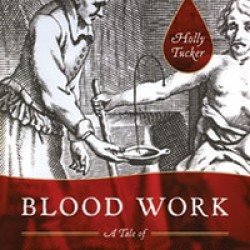Bookshelf: Fall 2012
Harriet Goldhor Lerner ’66 was a most appropriate person to share her choices for books about relationships in March as part of NPR’s Three Books series: she spent several decades as a Menninger Clinic staff psychologist and now has a private practice in Lawrence, Kansas. Her own latest book is Marriage Rules: A Manual for the Married and the Coupled Up, and among her ten previous works is The Dance of Anger, the first book on female anger.
Self-described “spritely alumnus” Karl Meyer ’51 shared news of Pax Ethnica: Where and How Diversity Succeeds (PublicAffairs), the third book that he’s co-authored with his spouse, Shareen Blair Brysac. It describes five societies in which people of different creeds and origins get along. Meyer was editor of the Daily Cardinal, a New York Times editorial board member, and a foreign correspondent and editorial writer for the Washington Post. The couple lives in New York City and Weston, Connecticut.
After careers as a UW-Green Bay assistant professor of philosophy and the executive director of both the Lake Michigan Area Agency on Aging and the United Way of Brown County, John Shier MA’68, PhD’72 earned a nursing degree at the age of sixty and has been a cardiac nurse and hospice nurse in Green Bay ever since. His rich experiences have become Notes from ThatGuyNurse: Choose Today, Live Tomorrow (9th Street Publishing).
A candid look at the “micro-inequities” that women scientists and engineers continue to face in their careers — and what can be done about them — is the subject of Breaking into the Lab: Engineering Progress for Women in Science (NYU Press). Author Sue Vilhauer Rosser ’69, MS’71, PhD’73 is a professor, the provost, and the vice president of academic affairs at San Francisco State University. She’s also on the board of the American Association for the Advancement of Science.
After the early death of his wife, R. (Ronald) Mark Liebenow ’75 emulated his hero, naturalist and activist John Muir x1863, by spending a year in the wilderness of Yosemite National Park to “face death and see if life is possible.” The result was the poetic Mountains of Light: Seasons of Reflection in Yosemite (University of Nebraska Press), filled with “sumptuous observations,” “uncommon humility,” and hope. Liebenow, of Peoria, Illinois, is also an ordained pastor of the Moravian Church.
Thirty-five histories of leading American tourist attractions: sounds engaging, yes? You’ll find them in American Tourism: Constructing a National Tradition (Center for American Places), co-edited by Nicholas Dagen Bloom ’91. The work reveals the carefully orchestrated efforts that have transformed mere places into beloved destinations. Bloom is an associate professor, chair, and director at the New York Institute of Technology.
Morgan Harlow ’95’s Midwest Ritual Burning (Eyewear Publishing) is a debut poetry collection that “fuses U.S. avant-gardism and the British pastoral tradition.” One reviewer describes the Barneveld, Wisconsin, poet’s work as “flawlessly correct, American, beautiful and true, antic funny, super real or surreal, and knowing.”
Here’s a triple treat of new titles from New York Times best-selling author Pamela Redmond Baumgard Satran ’75. Her novel The Possibility of You (Simon & Schuster) looks at three women facing unplanned pregnancies at key moments of the past century; Thirty Things Every Woman Should Have and Should Know by the Time She’s 30 (Hyperion) is based on Satran’s Glamour list that became an Internet sensation; and Rabid: Are You Crazy about Your Dog or Just Crazy? (Bloomsbury) humorously takes on dog-culture excesses. Satran is also the co-creator of Nameberry.com, a Glamour columnist, a former Daily Cardinal editor, and the spouse of journalist Richard Satran ’77. They live in Montclair, New Jersey.
You’re all set for a great walk, but where to go? If you’re in this neck of the woods, check out 50 Hikes in Wisconsin: Trekking the Trails of the Badger State, Second Edition (Countryman Press), by Ellen Shumaker Morgan ’95, MS’98 and John Morgan MA’03 of Stoughton. They scout out a wide variety of routes and provide plenty of details to help you along the way. When they’re not exploring, Ellen is a food scientist, and John is a freelance writer.
In It’s OK Not to Share and Other Renegade Rules for Raising Competent and Compassionate Kids (Tarcher/Penguin), Heather Rigney Shumaker MS’97 contends that parents must assess children’s issues from a child’s point of view and encourages reading her advice — drawn from psychological theory and her own parenting experiences — with a very open mind. Shumaker is a journalist and speaker in Traverse City, Michigan.
From March to August 2011, Zach Davis ’08 of Boulder, Colorado, hiked the entire 2,181 miles of the Appalachian Trail with no backpacking experience, faced extreme illness, and still was among the fewer than 30 percent who finish. He says that other guidebooks all miss what his Appalachian Trials: A Psychological and Emotional Guide to Successfully Thru-Hiking the Appalachian Trail (Good Badger Publishing) covers for the first time: proper mental preparation for living outside for half a year.
Somalia’s Mogadiscio — or Mogadishu — was not always a sprawling urban landscape or the site of a civil war. In the experience and fond memory of Iris Byland Kapil ’53, MA’62 — living happily among its people in the 1960s, when it was the center of a newly independent Somali Republic — it was a “lovely, vibrant city.” Her rich, colorful reflections are captured in Tales of Mogadiscio (Light Messages). Today Kapil lives in Raleigh, North Carolina.
Isn’t there something about autumn, when you retreat back into your walls and routines, that makes you want to embrace your home anew? Phyllis Hoge PhD’58 toasts the quotidian elements of affectionately caring for a dwelling space in Hello, House (Fithian Press), her latest poetry collection. After teaching writing and literature at the University of Hawaii for twenty years, Hoge and her cat are now retired in Albuquerque.
Thayer Drake Thompson ’60 has amassed an astounding collection of documents, photos, memorabilia, letters, trivia, and items of historical import to create Fraternal Voices of Theta Delta Chi: Sigma Deuteron Charge, University of Wisconsin 1895–2010(PrintLynx). The author taught at the junior and senior high school and community college levels, and was a city manager. He lives and writes in Sedalia, Missouri.
The man whom the Sacramento Bee has called “a whimsical provocateur questioning the values of high and low art” — Port Costa, California, ceramicist, sculptor, and “mad scientist” Clayton Bailey ’61, MA’62 (and his alter ego, archaeologist Dr. Gladstone) — have spent a half-century crafting playful, irreverent, and often bizarre artworks that amuse, confuse, and occasionally offend. Art curator Diana Daniels has compiled a fifty-year retrospective book called Clayton Bailey’s World of Wonders (Crocker Art Museum) to accompany his recent show at the Crocker in Sacramento. Bailey is also a professor emeritus at Cal State-Hayward and the recipient of many notable grants.
Robert Berens MS’61 of Springfield, Virginia, specializes in military literature, and his fifth book is no exception. A Purpose … and a Passion: A Civil War Novel (M.T. Publishing) explores the cultural tension during and following the war — a time when four million former slaves sought their places in the world. Berens witnessed the battlefield ravages of WWII, Korea, and Vietnam; worked with Pentagon news services during the Cold War; and has taught at several colleges.
The haunting cover of Witness: The Selected Poems of Mario Benedetti (White Pine Press) draws the reader into the words of a man who was a powerful voice for social justice and a literary light in his native Uruguay. This volume, translated by Louise Popkin MA’63, PhD’73, is the only collection of Benedetti’s work prepared for the English-speaking world that had the late poet’s active support and direct input. Popkin teaches Spanish at Harvard’s Division of Continuing Education.
Chicago author Barbara Gregorich MA’65 summarizes Jack and Larry: Jack Graney and Larry, the Cleveland Baseball Dog (CreateSpace) — her nonfiction tale told in free verse — as “the pursuit of the pennant: a story of devotion, commitment, and persistence, illustrating what it means to be major league.”
Passing the Test: Combat in Korea, April–June 1951 (University Press of Kentucky) is a comprehensive narrative of the conflict by Chicagoan John Greenwood MA’66. It emphasizes the tactical operations on the front lines, examines U.S. and UN strategy, and chronicles the operations of the Chinese and North Korean forces.
Hanson Baldwin, a longtime New York Times editor and a 1943 Pulitzer Prize winner, was one of America’s best-known military writers and analysts of World War II and the Vietnam War. His story has now been told by Robert Davies PhD’67 in Baldwin of the Times: Hanson W. Baldwin, A Military Journalist’s Life, 1903–1991 (Naval Institute Press). Davies is a Minnesota State University-Moorhead professor emeritus who lives in Bow, New Hampshire.
Being a pioneering — and enduring — advocate of early-childhood education has put Harry Morgan MS’67 in excellent stead to create the second edition of his book Early Childhood Education: History, Theory, and Practice (Rowman & Littlefield College Publishing). This revision includes, among other elements, a chapter on Critical Race Theory and its implications. Morgan teaches child development and learning theory at the University of West Georgia in Carrolton.
It’s easy to lose yourself in Echo: Unspoken / Floating World (Parallel Press). It’s a beautiful confluence of paintings by Bruce Murray MA’67, MA’72 of Middleton, Wisconsin — inspired by Japanese artist Hiroshige — and extended-form Japanese haiku by Blair Mathews ’53, MS’54 of Madison and Sedona, Arizona. The two former UW professors and administrators began collaborating in the seventies.
In a follow-up to his information-packed-yet-entertaining How the States Got Their Shapes — the basis for the History Channel’s documentary of the same name — Mark Stein ’73 has created How the States Got Their Shapes Too: The People Behind the Borderlines (Smithsonian Books). Stein is a playwright and screenwriter in Washington, D.C., and has taught writing and drama at American University and Catholic University of America.
A simple, peaceful life in the wilds of the Wyoming mountains beckons to weary attorney Jim Taylor in Solitude Showdown (BookCrafters), by Lee Atterbury JD’74. Reality turns out to be quite different after Jim witnesses a murder and kidnapping: he and his horse, Buck, must face the perils of nature while trying to thwart the kidnappers. The author is also an attorney — with Atterbury, Kammer & Haag in Middleton, Wisconsin — as well as a horse owner and rider, black belt in tae kwon do, and retired private pilot.
Christopher Tozier ’91 has put his English major and creative-writing studies to work authoring a middle-grade fantasy novel, Olivia Brophie and the Pearl of Tagelus (Pineapple Press). He lives in Eustis, Florida.
HeartStrings: A Guide to Music Therapy-Informed Community Engagement for Symphony Orchestras (madisonsymphony.org/toolkit) is a collaboration between the Madison Symphony Orchestra and its director of education and community engagement, Michelle Jakab Kaebisch ’94. The first copies went to Carnegie Hall’s Weill Music Institute, and Kaebisch spoke about the book and the innovative program that inspired it at the League of American Orchestras’ annual conference in June.
The essayists of Knowledge, Differences and Identity in the Time of Globalization: Institutional Discourse and Practices (Cambridge Scholars Publishing) contend that “the discourse of globalization that pertains to higher education reform is troubling” because it marginalizes and antagonizes its human subjects. James Kusch PhD’95, a professor of education at Eastern Mediterranean University in Northern Cyprus, edited the work.
Joss Whedon — the creator of such phenoms as Buffy the Vampire Slayer, Angel, and Firefly, as well as the online series Dr. Horrible’s Sing-Along Blog — is becoming something of a household name. In The Philosophy of Joss Wheden (University Press of Kentucky), co-editor Dean Kowalski MA’96, PhD’00 “examines Wheden’s plots and characterizations to reveal their philosophical takes on the limits of personal freedom, sexual morality, radical evil, and Daoism.” Kowalski is an associate professor of philosophy at UWC-Waukesha.
Published in the Fall 2012 issue
















Comments
No comments posted yet.